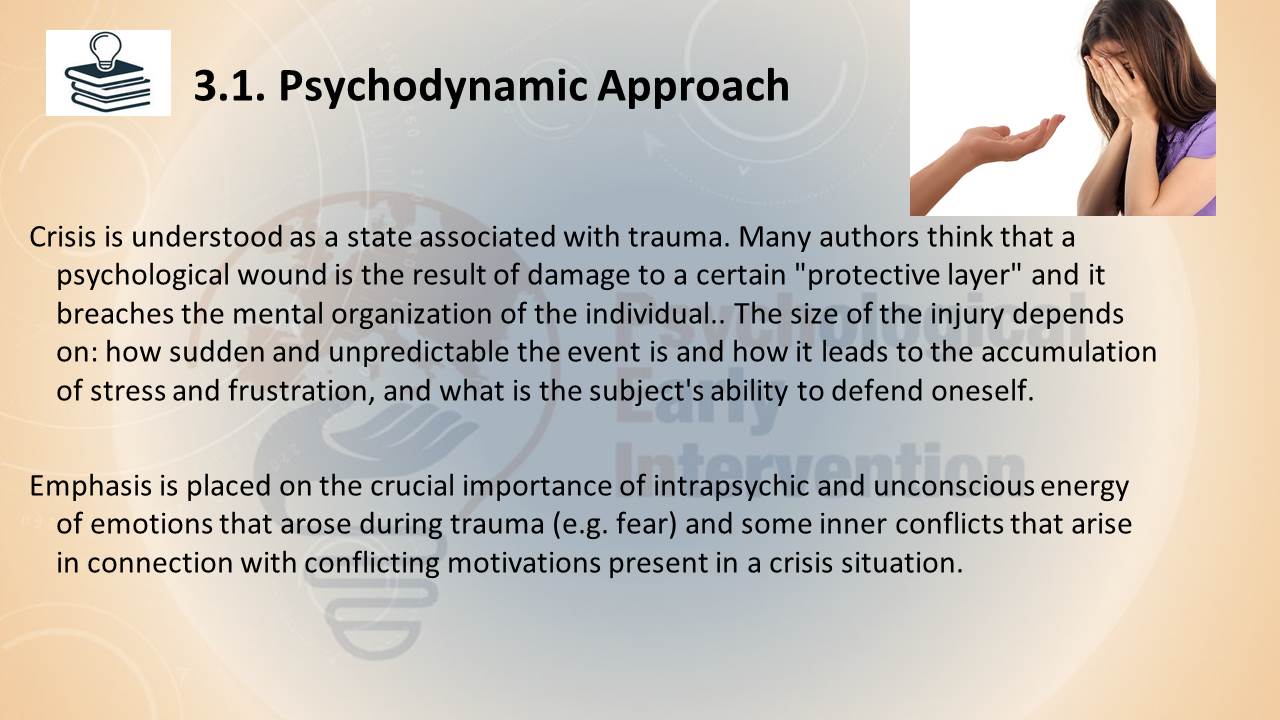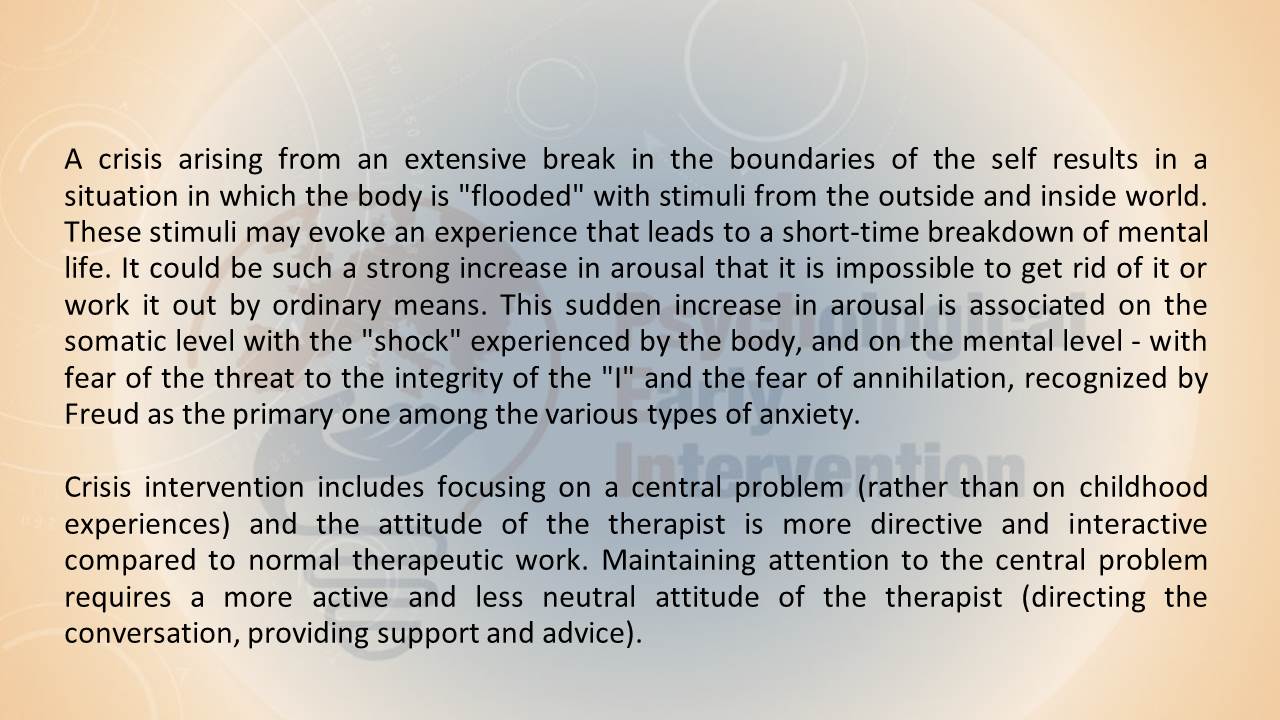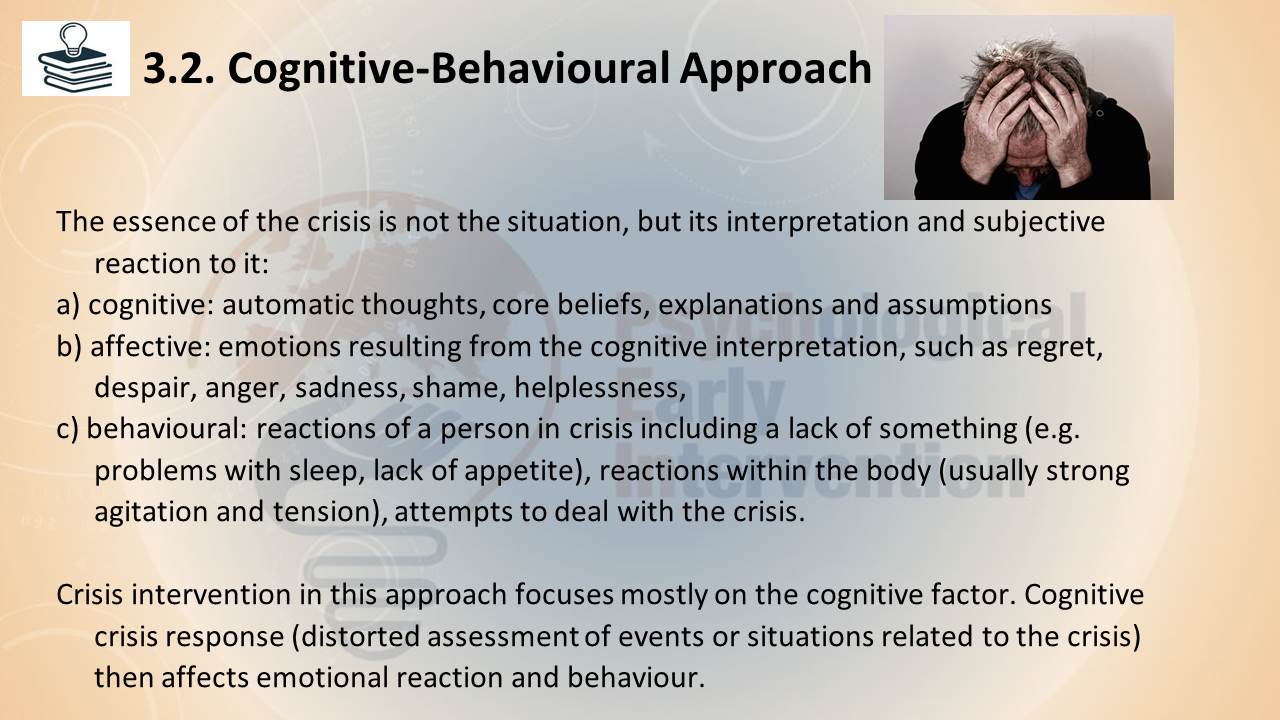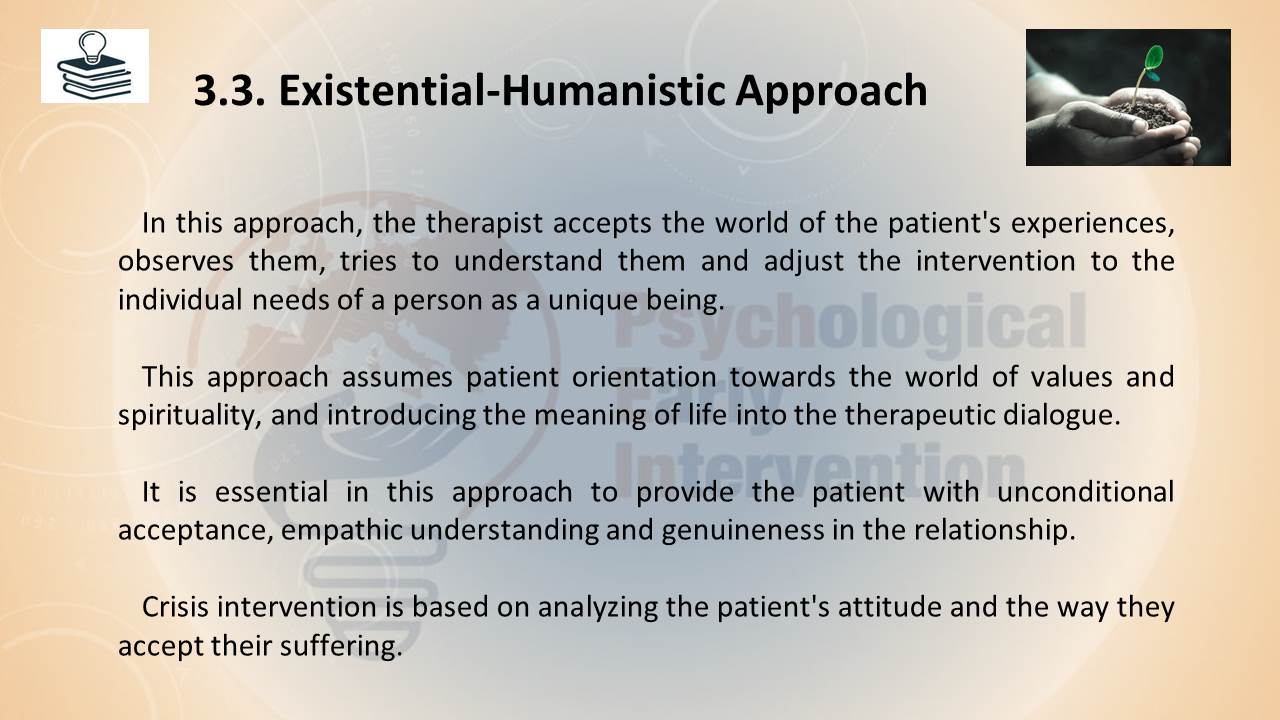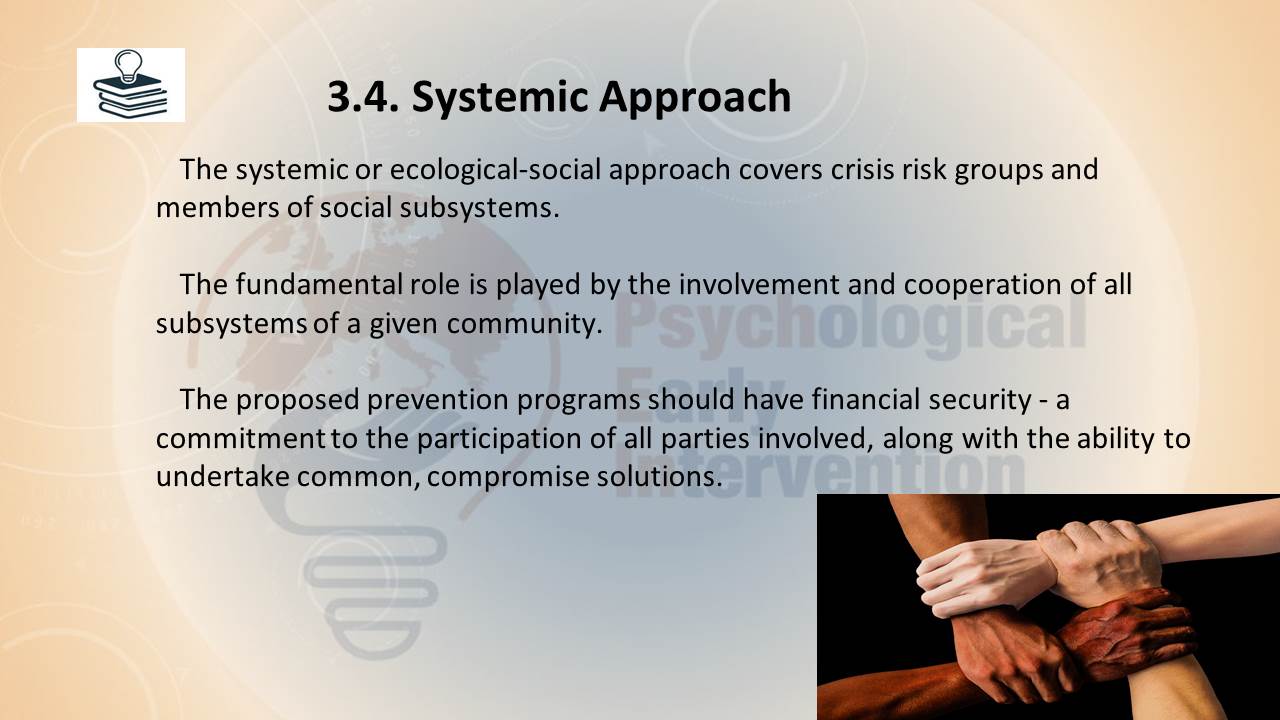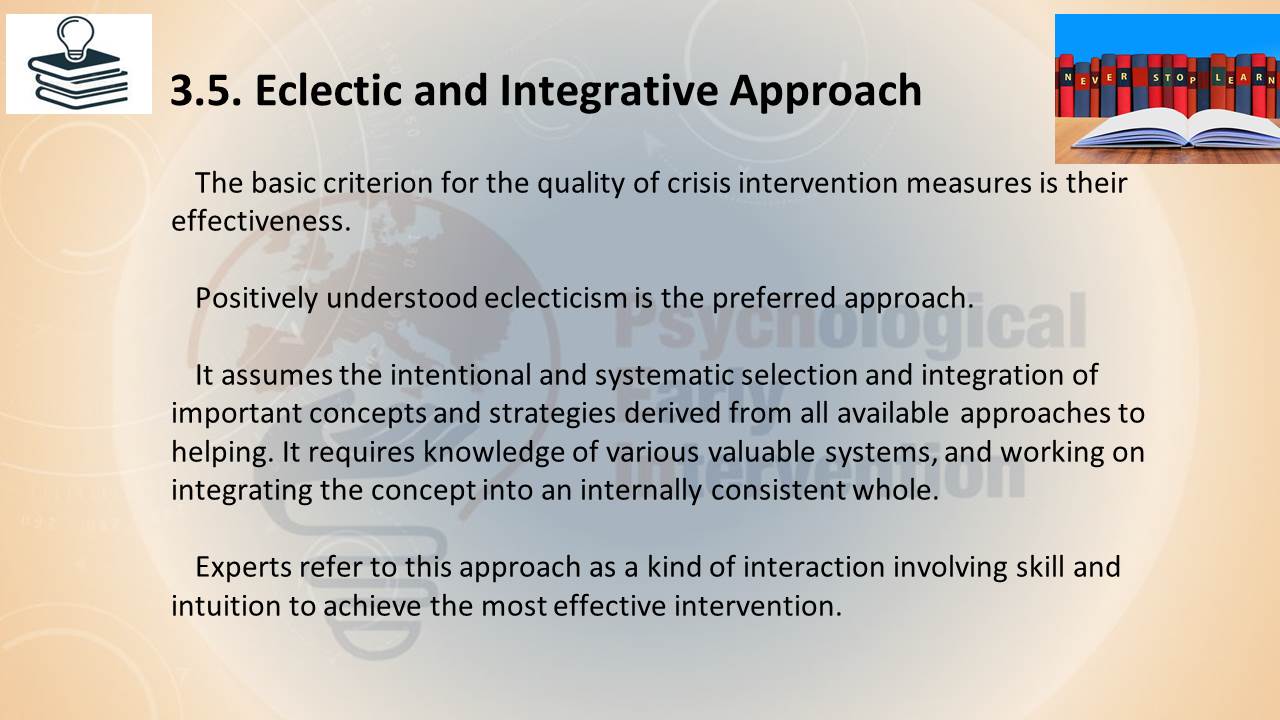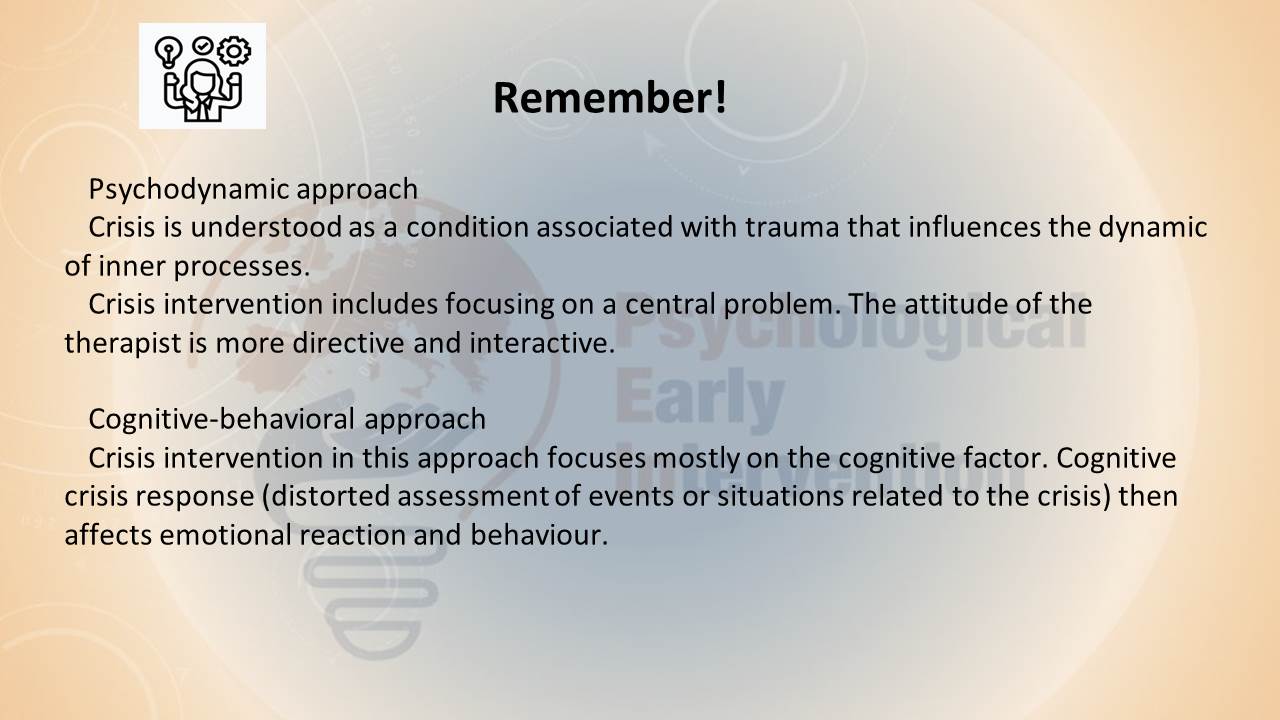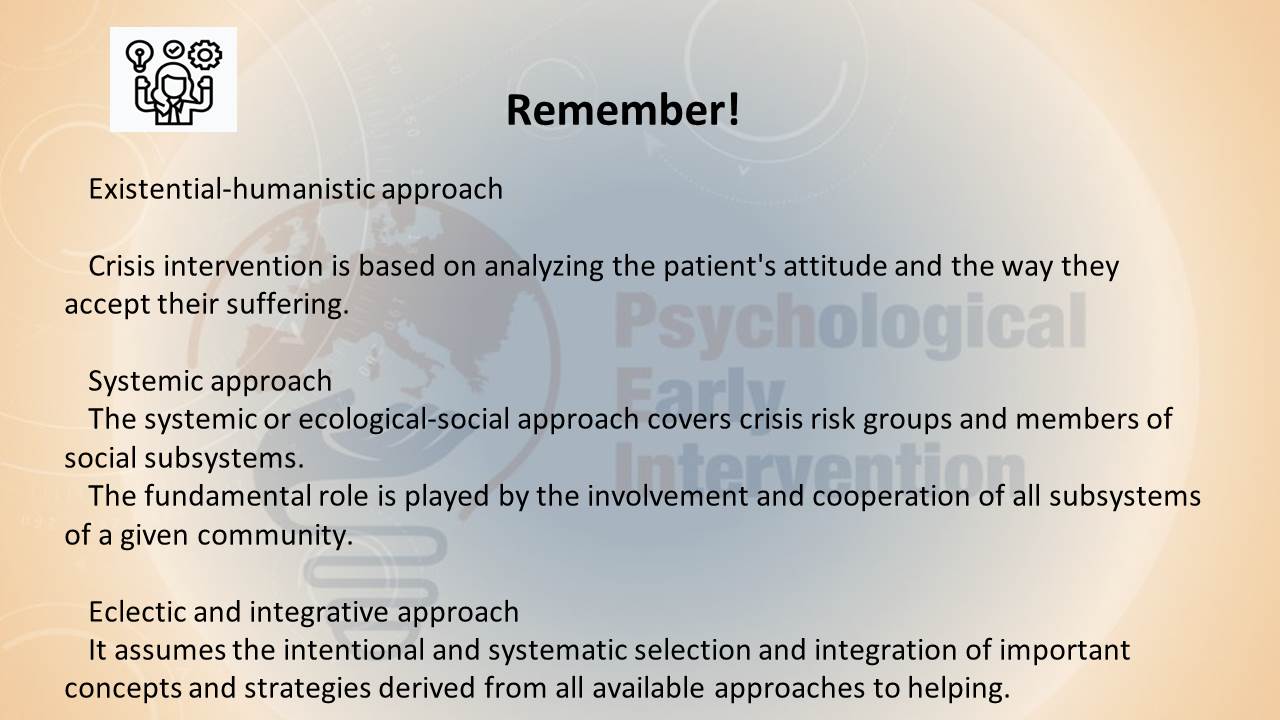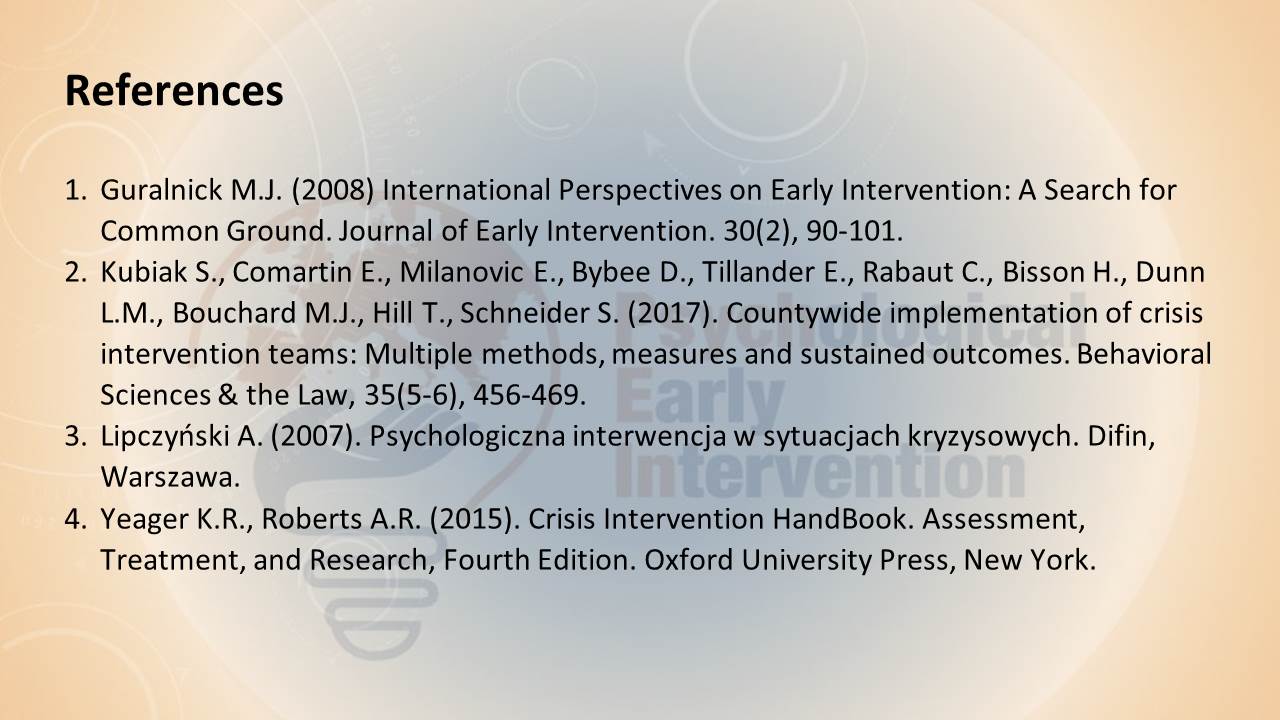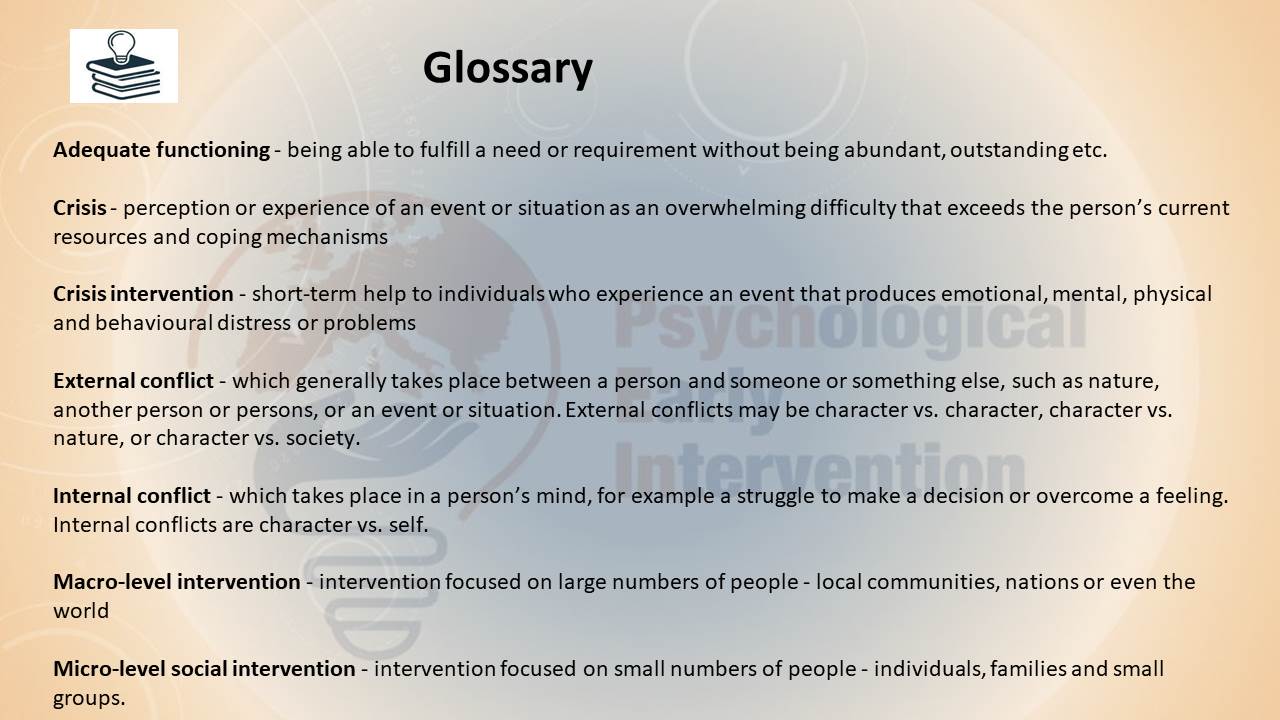Crisis is understood as a state associated with trauma. Many authors think that a psychological wound is the result of damage to a certain "protective layer" and breach mental organization of the individual. The size of the injury depends on: how sudden and unpredictable the event is and how it leads to the accumulation of stress and frustration, and what is the subject's ability to defend oneself.
Psychodynamic approach
- Crisis is understood as a condition associated with trauma that influence dynamic of the inner processes.
- Crisis intervention includes focusing on a central problem, the attitude of the therapist is more directive and interactive.
Cognitive-behavioral approach
- Crisis intervention in this approach focuses most on the cognitive factor. Cognitive crisis response (distorted assessment of events or situations related to the crisis) then affects emotional reaction and behavior.
Existential-humanistic approach
- Crisis intervention is based on analyzing the patient's attitude and the way he accepts his suffering.
Systemic approach
- The systemic or ecological-social approach covers crisis risk groups and members of social subsystems.
- The fundamental role is played by the involvement and cooperation of all subsystems of a given community.
Eclectic and integrative approach
- It assumes the intentional and systematic selection and integration of important concepts and strategies derived from all available approaches to helping.













